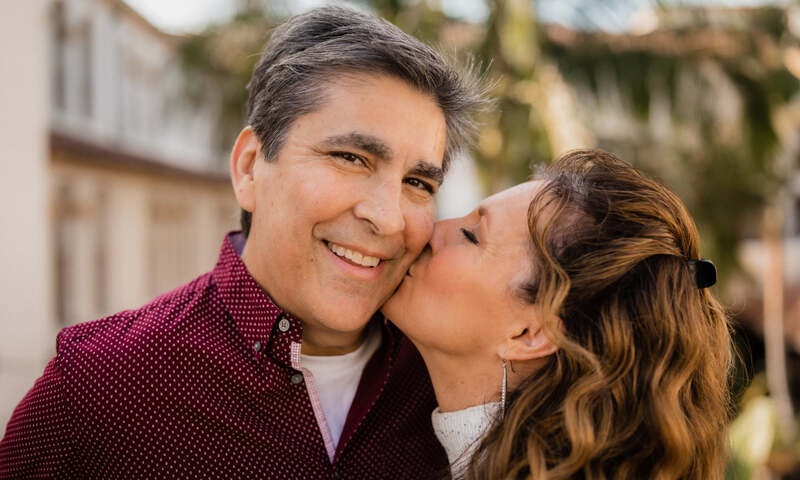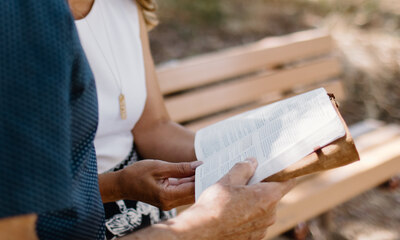3 Ways to Prepare Your Marriage for Life’s Hardest Seasons

How can one not be grateful about the advances in medical science to treat and cure human torments like heart disease, physical afflictions, and even cancer? Without such advances I would not be alive.
After being diagnosed with stage III/IV colorectal cancer I was given the sobering odds of 50-50 to make it to five years. So of course, I willingly underwent the most brutal treatment options available—chemotherapy, radiation, and surgery—and I would do it all again today. Yes, it was medically approved torture, straight out of the medieval years. And it did bring me up close and personal with the doorsteps of death. A few times actually.
But it also gave me a chance at life—to get to know and spoil my four (and counting!) grandchildren. And to spend more amazing years with my beautiful wife, Alisa, to keep on ministering in the way God has called us to.
Living with a New Normal
While the repercussions of surviving this ethical torture routine was a profound change in my body and being, even more impactful was the change to our views of the “ideal” marriage.
We led a rather spontaneous and carefree sort of life. Dangle in front of us an unplanned trip to Hawaii, or to take an impromptu road trip? Alisa and I were all over that!
Today, we can barely leave the house without knowing the location of every public restroom on a simple 30-minute drive away from home. We now have to be sure we have enough back-up of all the medications I need, and there are a lot of pills. And ointments. And emergency underwear.
And the need for sleep must always be accounted for.
(We have come to realize that I now use sleep as a way to escape from my troubles. It is almost the perfect crutch from the unrelenting fatigue and pain and nausea, which are all so unforgiving. And sleep is so blissful—a supreme rest—that becomes an easy, pleasant distraction. Thank God I can sleep at the drop of a pin!)
In a pinch, though, any form of distraction or entertainment will do. Ministry related things like lecturing or speaking engages our minds and opens an escape hatch. But so does watching Instagram and YouTube clips, and playing online games, things I am leaning on more and more.
The Cost of Crutches
But alas, all such crutches have consequences. Sleep induces a pernicious kind of laziness and keeps us from fully enjoying the beautiful surroundings and opportunities that Southern California offers. Online entertainment and distractions in all of their forms trigger a kind of avoidance, even avarice. I would rather squander away my days in bed and online than on a hike or in a car or airplane. And even ministry and teaching and speaking—all good and healthy—precipitate an emotional fatigue.
Ugh. What is to become of me and my new body, and more importantly, what is to become of our fun, free and easy relationship as retirement nears? Troubles and “what-ifs” galore now crowd into our once carefree lifestyle, altering the plans of our ideal future.
So, we find ourselves at a crossroad, and we have yet to work out a perfect solution. Perhaps we never will. Perhaps we will simply adjust our goals and ideals to account for the new realities we face. It is cool that we are learning some sweet new things about each other though. Like how kind and self-sacrificing my wife is. How many crutches I rely on, and how caring and patient she is towards me and my new body.
Three Things That Made the Difference
How she is able to do this with such mercy and grace is a testament to the work she put in before my diagnosis. I see now that she did three important things in preparation that all of us can learn from, especially before facing life-or-death circumstances.
She nurtured her relationship with the Lord. Through regular quiet times, prayer, and worship, she allowed God’s strength to carry her when I could not. This looked like juggling doctor appointments, providing around-the-clock care, and dealing with the day-to-day headaches of household needs and troubles.
We cultivated a faith-community around us. It was these sweet friends in our church and community that showed up when chemo hit the hardest and the pain was the worst. They brought meals, prayed with us, encouraged us, and helped with so many small chores around the house that were beyond us.
We made deposits into our “love bank account.” We met each other’s bids for attention, checked in regularly, and agreed to always speak truth about our fears, worries, and struggles. We also gave each other the necessary space to process doubts and concerns about the future “us.” In the roughest of times, we were able to make withdrawals from that rather full bank of love.
Reimagining the Future Together
And how difficult it is to re-imagine the future “us”! It may be the hardest and harshest new reality. What will our next 10–20 years look like? As the path of our new journey slowly unfolds, we are emboldened to discover an inner strength, where the Holy Spirit resides and God’s mercy provides.
And this is really all we need: to wait on Him, to trust in Him, and to move forward in His strength. Everything else is just a distraction to His ultimate goal—where the purpose of marriage, as author Gary Thomas notes, is not just to make us happy, but to make us holy.
So, to Him be the glory!



